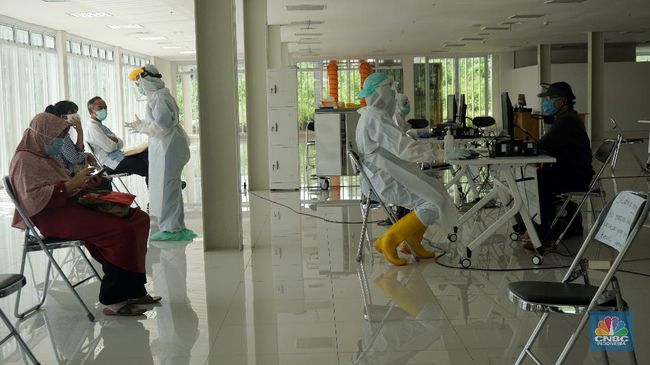Jakarta, CNBC Indonesia – A recent study from the medical journal The Lancet revealed that about 40 percent of Covid-19 positive patients in Wuhan, China have antibodies that can offer protection from being re-infected by the coronavirus. Even at least the immune system can last for nine months.
According to the study, the incidence rate of positive cases of COVID-19 carried out in Wuhan, the city that was hardest hit by the virus, was only 6.9 percent, indicating that only a small proportion of the Wuhan population contracted COVID-19 after the outbreak of the epidemic. that.
“Assessing the proportion of the population that has contracted COVID-19 and those who are immune is crucial in determining effective prevention and control strategies to reduce the potential for a future outbreak of the pandemic,” said Wang Chen, lead author of the article and President of the Chinese Academy of Medical Sciences. and Peking Union Medical College.
Quoted from the CGTN News page, the first long-term seroprevalence survey in Wuhan, researchers tested COVID-19 antibodies on 9,500 residents after the city’s lockdown policy was lifted in April 2020. Blood sample tests are also carried out in June as well as in October and December to check if antibodies are present.
Previous studies in many countries have shown that the population who have contracted COVID-19 as counted by the rate of positive cases for serum antibodies is much higher than for the actual transmission cases.
The new study suggests that this is likely due in large part to people who have contracted COVID-19 who are asymptomatic (without symptoms), have not been tested for Coronavirus, or are being treated because they have mild symptoms of infection.
In addition, it was found that antibodies in asymptomatic patients were lower than in patients with confirmed COVID-19 and asymptomatic cases in the study.
The study underscores the remarkable achievements in China’s public health system in controlling the COVID-19 outbreak in Wuhan when testing, tracking and care resources were underdeveloped.
“This is an important milestone in the description of SARS-COV-2 transmission and our understanding of immunity during the COVID-19 pandemic,” wrote Richard Strugnell, a leading microbiologist and immunologist from the Doherty Institute in Australia.
(roy/roy)
– .


